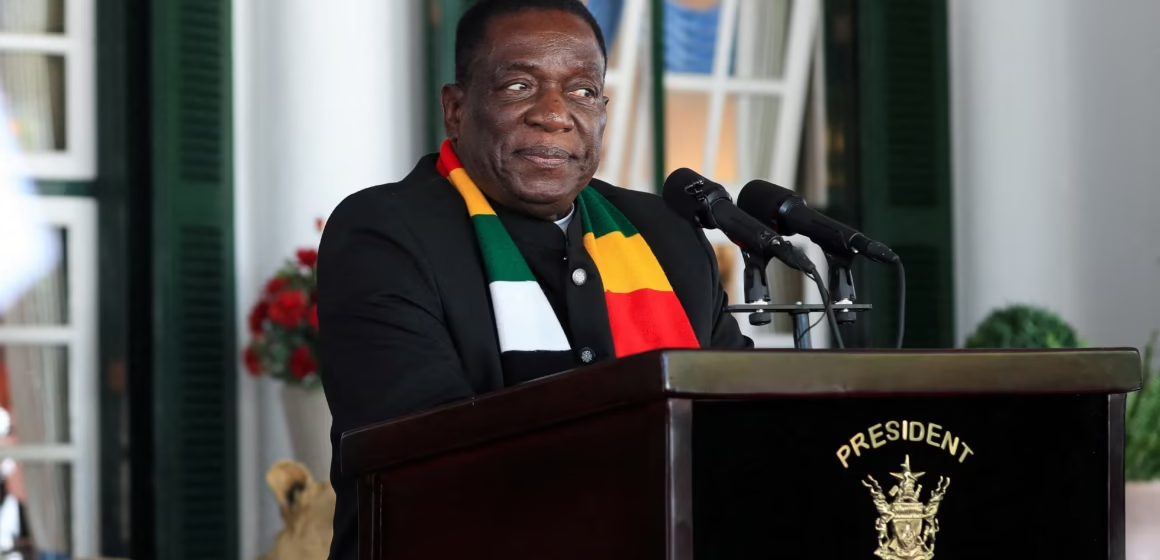HARARE, Nov 25 (Reuters) – On Monday, Zimbabwe’s president convened a meeting with creditors and finance executives to outline the country’s ambitious plans to address its debt arrears and restructure its $12.7 billion external debt. This initiative marks Zimbabwe’s goal to access international capital markets for the first time in over twenty years.
The nation’s debt currently represents 81% of its gross domestic product, presenting a significant challenge for a country that has endured numerous financial crises, including severe hyperinflation and failed attempts to establish new currency systems.
During the conference, President Emmerson Mnangagwa announced that Zimbabwe is in discussions with the International Monetary Fund (IMF) to establish a Staff Monitored Program (SMP). According to Akinwumi Adesina, President of the African Development Bank (AfDB), securing an SMP is crucial for implementing necessary policy reforms. He also indicated that the AfDB is prepared to provide financial support to help mitigate any negative impacts of these reforms on Zimbabwe’s economy.
Adesina mentioned that the AfDB has funds available from a special reserve to assist in settling Zimbabwe’s arrears, although he did not disclose specific amounts. Finance Minister Mthuli Ncube stated that clearer timelines for addressing the arrears would emerge by mid-2025, contingent on securing bridge financing from lenders.
Analysts emphasize that resolving these arrears is vital for an economy that currently lacks access to IMF funds, which serve as a last resort for financial assistance. Prosper Chitambara, an independent economist based in Harare, remarked, “The issue of arrears is a major albatross around our neck. Once the arrears are cleared, it will be cheaper to borrow and easier to attract investment.”
To unlock funding, Zimbabwe must also engage with bilateral creditors and settle arrears with the AfDB, World Bank, and European Investment Bank. An IMF spokesperson noted that the organization cannot provide financial support to Zimbabwe due to its unsustainable debt situation and external arrears.
The targeted SMP does not include financial assistance or require approval from the IMF’s executive board, but government officials believe it will help demonstrate a commitment to sound economic policies. The government has already missed its initial goal to establish an SMP by April and a subsequent deadline last month, limiting IMF engagement to technical assistance, such as budget preparation.
The United Nations has indicated that 24 out of Africa’s 35 low-income countries are at high risk of debt distress. Since 2020, countries like Zambia and Chad have successfully restructured their debts, while Ghana is nearing completion of its own debt rework, and Ethiopia is currently undergoing restructuring.
Zimbabwe’s situation is particularly complex, as 45% of its debt burden consists of outstanding debt, with the remainder being arrears and penalties, according to a 2023 government report. The Africa Legal Support, an AfDB initiative aimed at assisting countries in debt distress, is funding two firms—Global Sovereign Advisory Company and law firm Kepler-Karst—to provide advisory services to the government, as noted by Ncube prior to the conference.
Currently, Zimbabwe has only been making minimal payments to its creditors, which include 16 bilateral lenders, although further details were not provided.
(Reporting by Nyasha Chingono and Duncan Miriri; Editing by Libby George and Susan Fenton)
Source
https://www.cnbcafrica.com/

